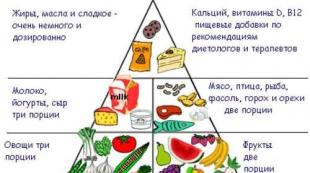Английский тексты для начинающих. Рассказы на английском языке для начинающих: делаем чтение эффективным инструментом
Привет друзья. Многие преподаватели включают самостоятельное внеклассное чтение в свою программу обучения. Некоторые задают чтение отрывков из классических произведений или адаптированных версий книг, но гораздо лучше для этой цели подойдут короткие рассказы, которые можно распечатать и раздать ученикам.
The boy was soaking wet. He was standing in a puddle of water. His clothes hung heavy on his body. Suddenly, a sharp razor-like slither of white light blazed above his head and a gravelly rumbling echoed in his ears. Then came another downpour. He pulled his jacket tightly ...
Long, long ago, in the winter-time, when the snowflakes were falling like little white feathers from the sky, a beautiful Queen sat beside her window, which was framed in black ebony, and stitched. As she worked, she looked sometimes at the falling snow, and so it happened that she pricked ...
In old days, it was believed that the seventh son, in a family of sons, was a conjurer by nature, and that he could work wonders like the fairies and cure diseases better than any doctor. If he were the seventh son of a seventh son, he was himself ...
Down below there was only a vast white sea of clouds. Above there was the sun, and the sun was white like the clouds, because it is never yellow when one looks at it from high in the air. He was still flying the Spitfire.* His right hand was on ...
JACK SELLS THE COW Once upon a time there was a poor widow who lived in a little cottage with her only son Jack. Jack was a giddy, thoughtless boy, but very kind-hearted and affectionate. There had been a hard winter, and after it the poor woman had suffered from ...
В этой статье мы предлагаем вам простые тексты на английском языке для начинающих со звуком и переводом. Если вы уже освоили , то вам не составит труда их прочитать.
Тексты записаны носителем английского с австралийским акцентом, так называемом Aussie . Слушайте внимательно, следите глазами за текстом, старайтесь уловить не только звуки, но интонации, ритм, ударение. Прослушайте несколько раз (чем больше, тем лучше), затем начинайте повторять вслед за диктором, причем старайтесь копировать в точности все оттенки ее речи.
Очень советуем почитать статью на тему , где в частности есть несколько практических полезных советов молодого очень успешного полиглота Луки Лампариелло о том, как правильно читать тексты на английском языке для начинающих.
1. I am happy — Я счастлив
2. Тексты на английском языке для начинающих на тему: What is it? — Что это?
Я хочу рассказать вам немного о своей семье. Моя семья довольно большая. У меня есть мать, отец, сестра и брат. Всего нас пятеро в нашей семье. Моей матери 42, но она выглядит моложе. Она не высокая, но стройная. Ее волосы светлые и кудрявые. Ее глаза серые. Она врач. Она очень добрая. Мой отец сильный и симпатичный. Его волосы темные и прямые. Его глаза коричневые. Мой отец программист. Он также может делать много разных вещей. Он всегда помогает нам с нашим домашним заданием. У меня есть старшая сестра. Ей 19 и она студентка. Она любит готовить и читать. Она похожа на моего отца. У нее много парней. Моему маленькому брату только 12. Иногда он шумный, но в основном он очень дружелюбный мальчик. Мне 16. Я люблю играть в футбол и слушать музыку. Я похож на свою мать. У меня также светлые, кудрявые волосы и серые глаза. После того, как я закончу школу я тоже хотел бы быть доктором и помогать людям. У нас есть бабушки и дедушки. Они живут в деревне. Они не работают, они на пенсии. Иногда они приезжают навестить нас и каждое лето мы навещаем их и проводим наши каникулы с ними.
4. Apperance — Внешность

У нас есть голова, лицо, две руки, две кисти, тело с двумя плечами, грудь и живот, две ноги, два колена и две ступни. У нас есть волосы и два уха на нашей голове. У нас есть два глаза, нос, рот на нашем лице. У нас есть 32 зуба и язык у нас во рту. Наши волосы могут быть темными или светлыми, прямыми или кудрявыми, длинными или короткими. Наши глаза могут быть голубыми, зелеными, коричневыми, серыми или желтыми. У нас могут быть длинные или короткие, сильные или слабые руки и ноги. Мы можем быть высокими или короткими, тонкими или толстыми. Наша кожа может быть белой, желтой, коричневой или черной.
Мы можем быть старыми или молодыми. Мужчина может быть хорош собой, или красивый. Женщина может быть очень симпатичной, или красивой. Как бы вы описали себя? Я не очень высокий, не очень короткий. Я не очень старый, но мои волосы почти серые. У меня голубые глаза. Мой нос прямой. Мои уши маленькие. Мое лицо немного загоревшее, потому что я часто на улице. А как насчет тебя? Как бы ты описал себя?
5. Where are you from — Откуда ты?

Откуда ты?
Я из России. А ты?
Я из Германии. А ты?
Я из Италии. А она?
Она из Франции. А он?
Он из Испании. А они?
Они из Чешской Республики.
Мы из разных стран, но мы все хотим учить английский, не так ли?
Кстати, вы знаете, где английский является родным языком? Он является родным в Великобритании, в Ирландии, в Канаде, в США, в Австралии, в Новой Зеландии, в Южной Африке, в Гане и вторым национальным языком в Индии.
Английский сейчас наиболее влиятельный язык в мире, на котором говорят более биллиона человек нашей планеты.
Простые тексты на английском языке для начинающих — коллекция небольших рассказов
Существует миф, что книги в оригинале могут читать только знатоки английского. Но сегодня ты убедишься, что даже новичок способен осилить литературное произведение и понять его смысл (особенно, если это адаптированные книги на английском языке для начинающих). К тому же, на ты всегда можешь нажать на незнакомое слово и увидеть его перевод.
Почему так важно читать книги на начальном уровне?
- Во-первых, чтение книг гарантирует более глубокое погружение в язык, чем тексты из учебников.
- Во-вторых, это огромный плюс к самооценке и мотивации, что очень важно для дальнейшего изучения языка.
- И, наконец, это одно из наиболее легких и интересных занятий, если подобрана подходящая литература.
Поэтому мы нашли для тебя лучшие адаптированные версии зарубежных произведений (просто переходи по ссылкам). Все книги переписаны профессиональными лингвистами и значительно сокращены: средний объем упрощенного варианта составляет примерно 10-20 страниц, что вполне реально прочитать за один вечер.
История о дружбе двух смышленых мышей из Франции и Великобритании, обеспокоенных судьбой культурного наследия Шекспира. В этой книге часто используется прямая речь, значит, в будущем у тебя не будет проблем с разговорным английским.
 |
by Mark Twain (beginner - 7 pages)Трудно найти того, кто не слышал о захватывающих приключениях Тома Сойера. А читать о них в оригинале еще веселее. Лексика рассказа подойдет даже тем, кто «вчера» начал учить английский. |
 |
by Sally M. Stockton (elementary - 6 pages)Нестареющая повесть о храбром лучнике, который борется за справедливость. После прочтения книги можно посмотреть одну из многочисленных экранизаций. |
 |
by Andrew Mathews (elementary - 6 pages)Прекрасный рассказ о девушке-подростке Сьюзи, живущей в тени своей более привлекательной подруги Донны. Сьюзи ненавидит свои веснушки и считает, что они делают ее некрасивой. Узнай, чем закончится история, и изменится ли отношение Сьюзи к самой себе. |
 |
by John Escott (elementary - 8 pages)В нашей подборке нашлось место и для истории про призраков. У автора очень яркий стиль повествования, поэтому от рассказа сложно оторваться. Значит, ты запросто осилишь 8 страниц за один подход. |
 |
by Mark Twain (elementary - 9 pages)Еще одно произведение Марка Твена в нашей подборке порадует тебя историей Гекльберри Финна. Отличный шанс вспомнить детство. Адаптированная версия этой детской книжки - настоящая находка для новичка! |
Больше десяти страниц - успех! Простые книги на английском языке для начинающих
 |
by Peter Benchley (elementary - 12 pages)Адаптированная версия знаменитых «Челюстей» - романа о большой белой акуле, атакующей отдыхающих курортного городка (бррр, ужас!). Из-за длинных распространенных предложений книга может показаться сложной для уровня elementary, но мы верим, что 12 страниц для тебя не проблема. |
 |
by Lewis Carroll (elementary - 13 pages)Замечательная возможность еще раз оказаться в Стране Чудес и узнать имена героев на английском языке. Книга читается очень быстро и легко - проверено на собственном опыте в начальной школе. |
 |
by Jack London (elementary - 15 pages)Душещипательная история о жизни пса во времена золотой лихорадки. Книга заостряет внимание на отношении человека и животных. По-моему, это произведение одно из лучших в нашей подборке по сюжету и стилю написания. |
 |
by Roger Lancelyn Green (elementary - 16 pages)Прекрасная возможность познакомиться с подвигами короля Артура и знаменитых рыцарей круглого стола. Добро пожаловать в эпоху английского Средневековья. |
Для тех, кто настроен серьезно. Читаем книги на английском языке для начинающих
 |
Вторая повесть Артура Конан Дойля, посвященная расследованиям Шерлока Холмса. В упрощенной версии произведения прекрасно сохранены красота повествования и таинственность этой детективной истории. |
 |
|
by Elizabeth Gaskell (pre-intermediate - 51 pages)Роман «Север и Юг» описывает противостояние фабрикантов и аристократов во времена промышленной революции в Англии. Книга придется по душе не только поклонникам романтической классики в исполнении Джейн Остин, но и тем, кому нравятся исторические произведения. |
Книги на английском с переводом для начинающих
Здравствуйте, друзья. Если вы только начинаете учить английский, то один из способов сформировать базу английского — это учить тексты и диалоги. В начале вам нужно брать максимально .
Как работать с английскими текстами:
1. Берите английский текст с аудио. Важно, чтоб диктор правильно и четко читал его в умеренном темпе.
2. Переведите текст, чтоб было все понятно. У вас будет несколько десятков незнакомых слов. В начале это нормально.
3. Прослушайте аудио вариант английского текста столько раз, сколько потребуется, чтобы запомнить его.
4. Читайте текст с опорой на аудио. Вам важно правильно читать слова и помнить их правильную звуковую форму. Важно сразу запоминать правильно. Потому что слово — это его правильное написание, звучание и прочтение.
5. Выучите текст наизусть. Постарайтесь говорить его по памяти, в том же темпе, что и диктор. Вначале будет сложно это сделать, но вы должны приучать свои органы речи говорить по английски, как англоговорящие люди.
Чем больше английских текстов вы проработаете, тем лучше. Если вы проработаете хотя бы 50-100 английских текстов, то вы уже сможете говорить на английском.
Вы можете работать с текстами прямо сейчас. Посмотрите эти видео уроки формата простой английский текст плюс аудио.
Вы можете распечатать эти тексты, но не забудьте, что переписать их от руки — это тоже хорошая тренировка.
Английский тексты для начинающих
1. Планы на отпуск/каникулы
2. Интервью
3. Письмо из Дублина
4. История Интернета
5. Миллионеры.
6. День в школе
7. Интервью на радио.
8.Подарок на день рождения.
1. Holiday plans
I’m going on holiday to Mexico next Friday, so next week’s very busy.
On Monday I’m collecting my tickets from the travel agent.
I’m going on holiday with my friends Ed and Lucy, so on Tuesday I’m meeting them after work and we are going shopping.
On Wednesday I’m seeing the doctor an 11 o’clock, then I’m having lunch with my mum.
On Thursday I’m leaving work early and I’m packing. I’m taking just a bag and a rucksack.
Then it’s Friday. Friday is the big day! At six thirty in the morning I’m going by taxi to the airport. I’m meeting Ed and Lucy there and at nine thirty we are flying to Mexico City.
I’m very excited!
2. Interview
— This is a very beautiful house.
— Thank you. I like it very much, too.
— Celine, you’re American. Why do you live here in London?
— Because I just love it here! The people are fantastic! I love them! And of course, my husband, Charles, is English, and I love him, too!
— That’s a very nice photo. Who are they?
— My sons. That’s Matt, and that’s Jack. They go to school here. My daughter’s at school in the US. Her name’s Lisa-Marie.
— Why does Lisa-Marie go to school in the US?
— Because she lives with her father. My first husband, you know, the actor Dan Brat. I hate him and all his movies. I never watch them.
— I see. And does Lisa-Marie visit you?
— Oh, yes. She visits me every vacation. She’s here with me now.
— And is this a photo of you and Charles?
— Oh, yes. It’s us in Hawaii. It’s our wedding. We’re so happy together!
3. A letter from Dublin
Dear Alan,
We’re on holiday in Dublin this week. Our hotel is very nice – old and comfortable. The people are very friendly, and the food is delicious. Irish music is good, and the beer is lovely!
Dublin is beautiful. It’s a big city with a lot of old buildings, and it isn’t expensive. The weather is horrible! It’s wet and it’s cold.
See you soon.
Love. Dona and Sergio (your Italian students).
4. The history of the Internet
It’s history
The Internet started in the 1960s. The United States Department of Defense started it because they wanted a computer network to help the American military. In the 1970s scientists worked on it.
Then in the 1980s telephone companies made in possible to communicate on the computer network in many more countries. An international computer language was born, and the Net went worldwide.
What can it do?
You can use the Internet for many things. You can buy a car or a house; you can book a holiday; you can watch a video; you can read an Australian newspaper or a Japanese magazine; you can buy books and CDs from North and South America; you can play chess with a partner in Moscow; or you can just chat to people from all over the world. The list is endless
5. Millionaires
We’re millionaires
In August 1999 three friends, Jacques Proust, Guy Fadat and Franqois Leclerc were on holiday in the town of Laraque in France. On Sunday they went shopping in the market and they saw a dirty, old painting of the Virgin Mary. They bought it for 1400 francs and they took it to Paris. In Paris an expert said that the painting was by Leonardo da Vinchi and it was worth 500 000 000 francs. The man in Laraque market said: “I was happy to sell the painting but now I’m very upset. I don’t want to think about it!”
6. A schoolday
Well, on schooldays I get up at 7:45. I have breakfast at 8 and I go to school at 8:30. I have lunch in school with my friends, that’s at 12:50 – it’s early in our school. I leave school at 3:30 in the afternoon and I walk home with my friends. I get home at 4:30. I go to bed at 11 o’clock on schooldays, but not at the weekends.
7. Radio interview
— What are you doing here in Milan, Sadie?
— I’m working. There is a big fashion show here.
— Are you staying in a hotel?
— No, I’m not. I’m staying with friends.
— Are you having a good time in Milan?
— Yes, I’m. I’m enjoying it very much.
— Now, Sadie, tell the listeners. What are you wearing now?
— I’m not wearing anything special! I’m just wearing jeans and a T-shirt.
— Thank you, Sadie. It was nice to talk to you.
— Thank you.
8. A present for a birthday
Suzanne
What would I like for my birthday? That’s easy. I’d like to have breakfast in bed. With the newspapers. And in the evening I’d like to go to the theatre.
Tom
Well, I’d like a new computer, because my computer is so old that the new programs don’t work on it. And then in the evening I’d like to go to a good restaurant. I don’t mind if it’s Italian, French, Chinese or Indian. Just good food.
Alice
I don’t have a mobile phone and all my friends have one, so what I’d really like is my own mobile. They aren’t expensive these days. And in the evening I’d like to go out with all my friends and have a great time!
Рассказ «Развести костер» — один из лучших рассказов Джека Лондона. Его самобытные рассказы до сих пор производят сильное впечатление на людей. Но они не только поражают воображение его читателей. Они вдохновляют. Видимо благодаря той огромной жизненной силе, которой обладал автор при жизни. Сила духа, любовь к жизни — это то, чем пронизаны все его произведения. Невероятный писатель, и невероятный человек. Мы в России любим и читаем его, чуть ли не больше, чем в самой Америке.
Jack London. To Build a Fire (in English, adapted)
Дорогой читатель, начинаем читать самые интересные рассказы Джека Лондона на английском языке. Один из них — это рассказ «To Build a Fire» (Развести костер). Рассказ адаптирован до уровня INTERMEDIATE (средний). К рассказу прилагается аудио и слова для изучения.
Слова и выражения, которые вы запомните, если прочитаете этот рассказ :
- trail — тропа
- cover — покрывать
- expected to reach — ожидал, что достигнет
- to freeze — замерзать
- frozen stream — замерзший ручей
- snow-covered ice — покрытый снегом лед
- underground springs — подземные источники
- to break through — провалиться
- sharp pain — острая боль
- wet — мокрый
- dry — сухой
- to dry — высушить
- branches — ветки
- matches — спички
- flame — пламя
- heavy load — тяжелый груз
- tremendous cold — страшный холод
- the fear of death — страх смерти
Слушать рассказ «To Build a fire» (Развести костер)
The man walked down the trail on a cold, gray day. Pure white snow and ice covered the Earth for as far as he could see. This was his first winter in Alaska. He was wearing heavy clothes and fur boots. But he still felt cold and uncomfortable.
- as far as he could see — насколько он мог видеть
Карта Аляски и северной Канады
The man was on his way to a camp near Henderson Creek (ручей Гендерсона). His friends were already there. He expected to reach Henderson Creek by six o’clock that evening. It would be dark by then. His friends would have a fire and hot food ready for him.
- It would be dark by then. — К тому времени уже стемнеет.
- would have a fire — разожгут костер
A dog walked behind the man. It was a big gray animal, half dog and half wolf. The dog did not like the extreme cold. It knew the weather was too cold to travel.
The man continued to walk down the trail. He came to a frozen stream called Indian Creek. He began to walk on the snow-covered ice . It was a trail that would lead him straight to Henderson Creek and his friends.
As he walked, he looked carefully at the ice in front of him. Once, he stopped suddenly, and then walked around a part of the frozen stream . He saw that an underground spring flowed under the ice at that spot. It made the ice thin. If he stepped there, he might break through the ice into a pool of water. To get his boots wet in such cold weather might kill him. His feet would turn to ice quickly. He could freeze to death.
- If he stepped there, he might … — Если бы он наступил туда, он мог бы …
- would turn — превратиться в
- could freeze — мог бы замерзнуть
At about twelve o’clock, the man decided to stop to eat his lunch. He took off the glove on his right hand. He opened his jacket and shirt, and pulled out his bread and meat. This took less than twenty seconds. Yet, his fingers began to freeze.
He hit his hand against his leg several times until he felt a sharp pain . Then he quickly put his glove on his hand. He made a fire, beginning with small pieces of wood and adding larger ones. He sat on a snow-covered log and ate his lunch. He enjoyed the warm fire for a few minutes. Then he stood up and started walking on the frozen stream again.
A half hour later, it happened. At a place where the snow seemed very solid, the ice broke . The man’s feet sank into the water. It was not deep, but his legs got wet to the knees. The man was angry. The accident would delay his arrival at the camp. He would have to build a fire now to dry his clothes and boots.
He walked over to some small trees. They were covered with snow. In their branches were pieces of dry grass and wood left by flood waters earlier in the year. He put several large pieces of wood on the snow, under one of the trees. On top of the wood, he put some grass and dry branches . He pulled off his gloves, took out his matches , and lighted the fire. He fed the young flame with more wood. As the fire grew , he gave it larger pieces of wood.
He worked slowly and carefully. At sixty degrees below zero, a man with wet feet must not fail in his first attempt to build a fire. While he was walking, his blood had kept all parts of his body warm. Now that he had stopped, cold was forcing his blood to withdraw deeper into his body. His wet feet had frozen. He could not feel his fingers. His nose was frozen , too. The skin all over his body felt cold.
Now, however, his fire was beginning to burn more strongly. He was safe. He sat under the tree and thought of the old men in Fairbanks.
The old men had told him that no man should travel alone in the Yukon when the temperature is sixty degrees below zero. — Старики говорили, что нельзя путешествовать по Юкону при температуре -60 градусов ниже нуля.
Yet here he was. He had had an accident. He was alone. And he had saved himself. He had built a fire.
Those old men were weak, he thought. A real man could travel alone. The man’s boots were covered with ice . The strings on his boots were as hard as steel. He would have to cut them with his knife.
- If a man stayed calm, he would be all right. — Если сохранять спокойствие, то все будет как надо.
He leaned back against the tree to take out his knife. Suddenly, without warning, a heavy mass of snow dropped down. His movement had shaken the young tree only a tiny bit. But it was enough to cause the branches of the tree to drop their heavy load . The man was shocked. He sat and looked at the place where the fire had been.
The old men had been right, he thought. The other man could build the fire. Well, it was up to him to build the fire again. This time, he must not fail.
- If he had another man with him, he would not be in any danger now. — Если бы с ним был еще кто-то, он не был бы сейчас в опасности.
The man collected more wood. He reached into his pocket for the matches . But his fingers were frozen . He could not hold them. He began to hit his hands with all his force against his legs.
After a while, feeling came back to his fingers. The man reached again into his pocket for the matches. But the tremendous cold quickly drove the life out of his fingers. All the matches fell onto the snow. He tried to pick one up, but failed.
The man pulled on his glove and again beat his hand against his leg. Then he took the gloves off both hands and picked up all the matches. He gathered them together. Holding them with both hands, he scratched the matches along his leg. They immediately caught fire.
He held the blazing matches to a piece of wood. After a while, he became aware that he could smell his hands burning. Then he began to feel the pain . He opened his hands, and the blazing matches fell on to the snow. The flame went out in a puff of gray smoke.
The man looked up. The dog was still watching him. The man got an idea. He would kill the dog and bury his hands inside its warm body. When the feeling came back to his fingers, he could build another fire. He called to the dog. The dog heard danger in the man’s voice. It backed away.
- would kill the dog — убьет собаку
- could build — сможет разжечь
The man called again. This time the dog came closer. The man reached for his knife. But he had forgotten that he could not bend his fingers. He could not kill the dog, because he could not hold his knife.
- could not kill — не сможет убить
- could not hold — не сможет держать нож
The fear of death came over the man. He jumped up and began to run. The running began to make him feel better. Maybe running would make his feet warm. They would take care of him.
- If he ran far enough, he would reach his friends at Henderson Creek. — Если он будет бежать далеко, он сможет достичь своих товарищей у ручья Гендерсона.
- would take care — позаботяться о нем
It felt strange to run and not feel his feet when they hit the ground. He fell several times. He decided to rest a while. As he lay in the snow, he noticed that he was not shaking. He could not feel his nose or fingers or feet. Yet, he was feeling quite warm and comfortable. He realized he was going to die.
Well, he decided, he might as well take it like a man. There were worse ways to die.
- he might as well take it like a man. — раз уж так случилось, надо принять это как подобает мужчине.
The man closed his eyes and floated into the most comfortable sleep he had ever known.
The dog sat facing him, waiting. Finally, the dog moved closer to the man and caught the smell of death. The animal threw back its head. It let out a long, soft cry to the cold stars in the black sky.
And then it tuned and ran toward Henderson Creek…where it knew there was food and a fire.










